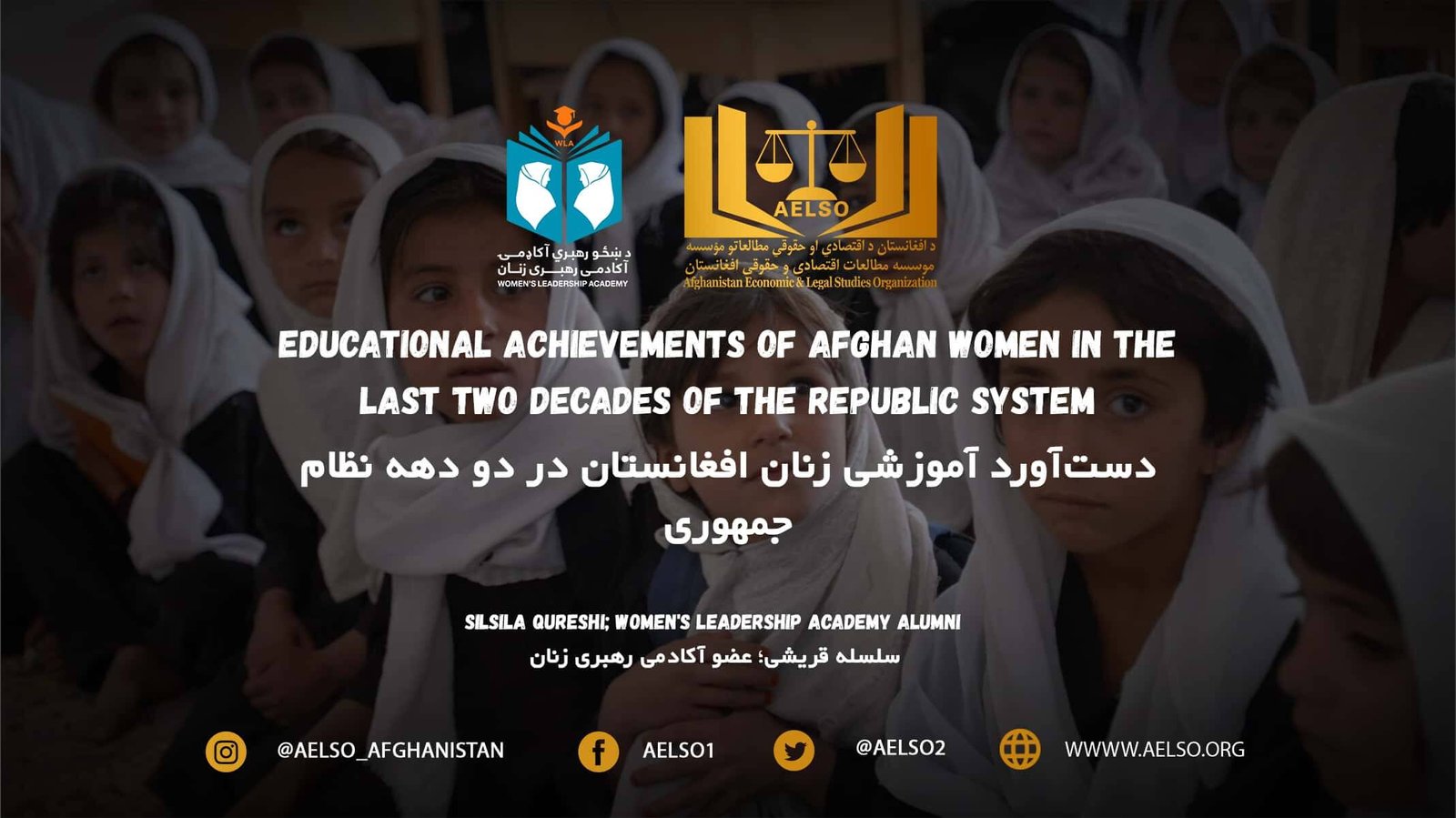
Educational Achievements of Afghan Women in The Last Two Decades of the Republic System
Education is considered one of the fundamental pillars of the infrastructural development of any country and is regarded as a basic right of every member of society, regardless of gender differences. After the de facto government came to power, schools, public and private universities, and other educational centers were closed to Afghan girls and women.
Considering the importance of education as one of the most effective factors in empowering women, education has played a key role in transforming their social, economic, and professional status. This article, using an analytical-descriptive method, seeks to answer the question: What achievements have Afghan women made through education between 2001 and 2021?
The theoretical framework of this research is Stanley Becker’s theory, who sees education as a tool for personal growth and national development. The findings show that with the expansion of education, Afghan women have reached a high level of political participation, including presence in parliament, the cabinet, and positions such as governors; they have also played an active role in social and cultural fields such as cinema, media, and literature; and have had a significant presence in economic areas like entrepreneurship, job creation, and even sports. Despite security challenges, cultural barriers, and structural limitations, Afghan women have been able, relying on education and various skills, to pave the way for social transformation and achieve effective accomplishments for society.
This article, by explaining these achievements, emphasizes the importance of women’s education for the current government and international institutions supporting Afghan women, to stress that new restrictions should not cause neglect of the human capital developed over these two decades. In conclusion, it emphasizes the need for reopening schools and universities, support of the de facto government and international institutions for girls’ education and the utilization of women’s capacities toward sustainable development.
Keywords: Women’s education, human capital, empowerment